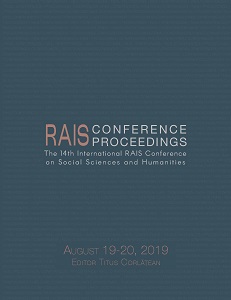Towards Legal Empirical Macrodynamics: A Research Agenda
Towards Legal Empirical Macrodynamics: A Research Agenda
Author(s): Julia M. Puaschunder
Subject(s): Labor relations, Human Resources in Economy
Published by: Scientia Moralitas Research Institute
Keywords: Artificial Intelligence (AI); Behavioral Economics; Behavioral Political Economy; Big Data, Governance; Machine Learning;
Summary/Abstract: Legal scholarship exists since the beginnings of science. Attempts to quantify the economic consequences of legal codifications have been made in the vibrant interdisciplinary field of law and economics. The socio-economic calculus of public policies has been addressed in new public management. Behavioral economics has entered the legal scientific discourse in the emerging field of empirical legal studies backed by ample evidence of the effect of law on socio-dynamics retrieved from manifold field and laboratory experiments. Behavioral insights is the most recent Nobel Prize crowned development to understand human decision making in the legal and public fields to help civil servants and legal executives foster the socio-economic outcomes of their work. All these variant interdisciplinary approaches aim at enlightening at legal codifications’ socio-economic outcomes to improve public collectives. In all these cases, empirics derived from quantitative and qualitative research help gain inferences for legal theory building and the strengthening of public policy implementations. This article argues that the time is ripe to dare the next step in legal empirical analyses by drawing from insights retrieved from big data and algorithmic machine learning but also introduce the use of optimal control macrodynamic modelling—a methodology originating in physics that entered macroeconomics and related disciplines to quantify and optimally control economic theory and practice. Given the ongoing big data revolution and exponentially rising data transfer coupled with unprecedented computational power advancements, the means are now available—for the first time—to push for empirical legal studies embracing novel tools—such as hierarchical modelling Bayesian statistics as well as optimum control sophistications—to derive inferences on how to improve legal theory and practices in innovative ways as never before possible. On the brink of artificial intelligence (AI) entering the labor force at a large scale, legal scholarship can now adapt to the novel market opportunities with acknowledging unprecedented computational power and methodological sophistication in deriving insights from big data. Heralding a new age of legal empirical macrodynamics also serves the legal community in light of the predicted heightening demands for creativity as future valuable asset of humanoid legal practitioners and scholars in comparison to repetitive tasks likely soon being outsourced to AI and machine learning.
Book: Proceedings of the 14th International RAIS Conference on Social Sciences and Humanities
- Page Range: 1-5
- Page Count: 5
- Publication Year: 2019
- Language: English
- Content File-PDF

